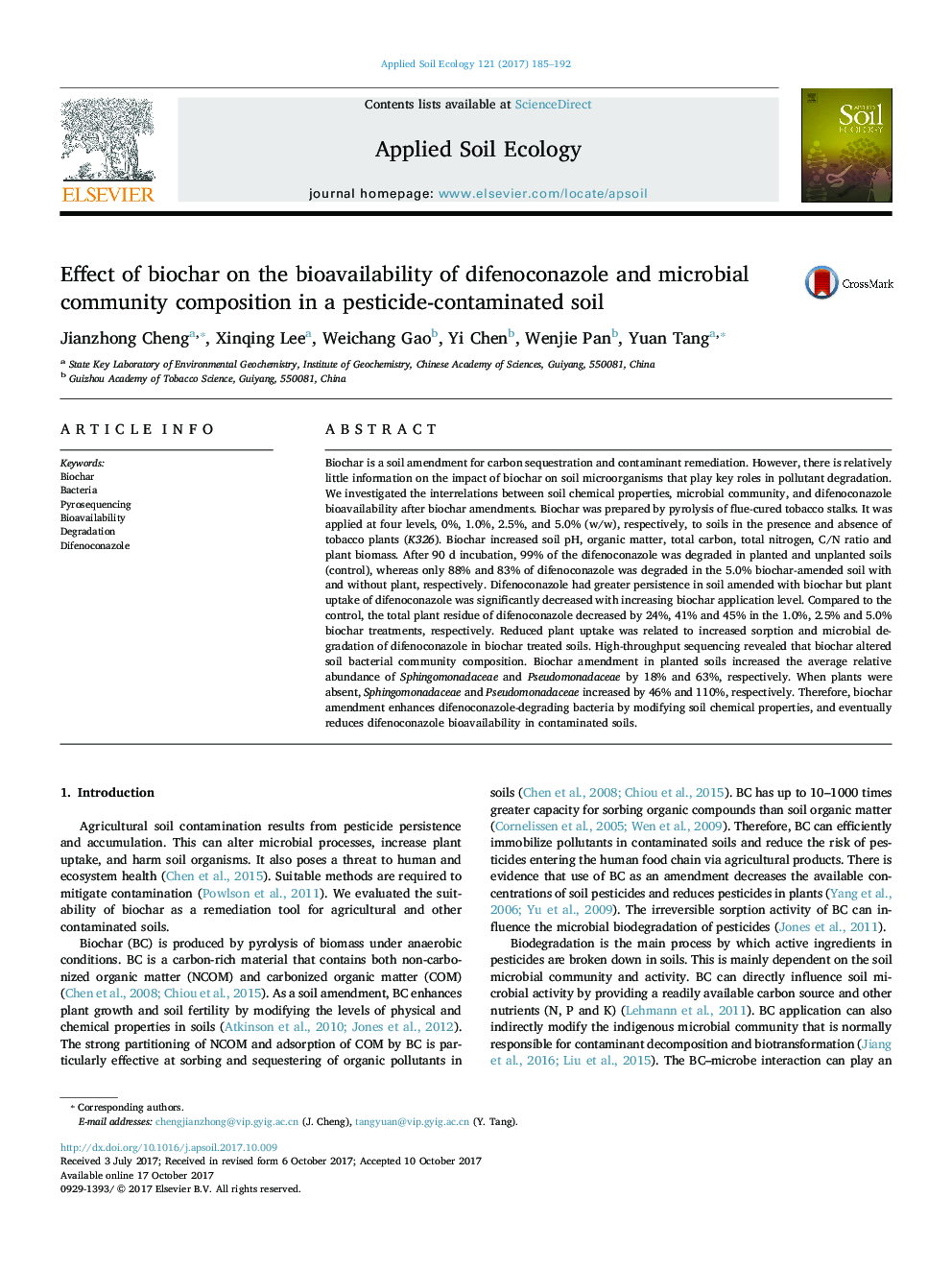| کد مقاله | کد نشریه | سال انتشار | مقاله انگلیسی | نسخه تمام متن |
|---|---|---|---|---|
| 5742558 | 1617763 | 2017 | 8 صفحه PDF | دانلود رایگان |
- Biochar increased soil pH, organic matter, total carbon, nitrogen and C/N ratio.
- Difenoconazole had greater persistence in soil amended with biochar.
- Plant uptake of difenoconazole was significantly decreased with increased biochar.
- Biochar increased the relative abundance of Sphingomonadaceae and Pseudomonadaceae.
- Biochar enhanced degrading bacteria and reduced difenoconazole bioavailability.
Biochar is a soil amendment for carbon sequestration and contaminant remediation. However, there is relatively little information on the impact of biochar on soil microorganisms that play key roles in pollutant degradation. We investigated the interrelations between soil chemical properties, microbial community, and difenoconazole bioavailability after biochar amendments. Biochar was prepared by pyrolysis of flue-cured tobacco stalks. It was applied at four levels, 0%, 1.0%, 2.5%, and 5.0% (w/w), respectively, to soils in the presence and absence of tobacco plants (K326). Biochar increased soil pH, organic matter, total carbon, total nitrogen, C/N ratio and plant biomass. After 90 d incubation, 99% of the difenoconazole was degraded in planted and unplanted soils (control), whereas only 88% and 83% of difenoconazole was degraded in the 5.0% biochar-amended soil with and without plant, respectively. Difenoconazole had greater persistence in soil amended with biochar but plant uptake of difenoconazole was significantly decreased with increasing biochar application level. Compared to the control, the total plant residue of difenoconazole decreased by 24%, 41% and 45% in the 1.0%, 2.5% and 5.0% biochar treatments, respectively. Reduced plant uptake was related to increased sorption and microbial degradation of difenoconazole in biochar treated soils. High-throughput sequencing revealed that biochar altered soil bacterial community composition. Biochar amendment in planted soils increased the average relative abundance of Sphingomonadaceae and Pseudomonadaceae by 18% and 63%, respectively. When plants were absent, Sphingomonadaceae and Pseudomonadaceae increased by 46% and 110%, respectively. Therefore, biochar amendment enhances difenoconazole-degrading bacteria by modifying soil chemical properties, and eventually reduces difenoconazole bioavailability in contaminated soils.
Journal: Applied Soil Ecology - Volume 121, December 2017, Pages 185-192
